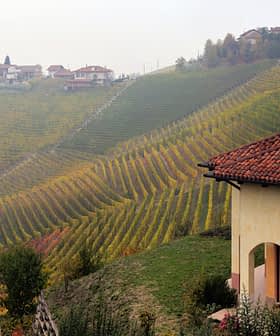Can Olive Trees Protect From Forest Fires?
After forest fires raged this summer across the Mediterranean, authorities are looking to olive groves and vineyards as fire-resistant alternatives.
 6K reads
6K readsThe summer of 2017 was a long and hot one across much of the Mediterranean. Low rainfall and high temperatures resulted in widespread drought but also destructive forest fires in several countries, including Portugal, France, Italy, Croatia, Greece and Turkey.
Portugal was the worst hit, with 141,000 hectares decimated by fire and 64 lives lost. In Greece, 15,000 hectares of land were lost to fires, while in France an area of 12,000 hectares was devastated.
A report by Euronews revealed that forest fires in the European Union have risen threefold to 1,068 in 2017 so far, compared to an average of 404 over the past eight years.
After taking stock of the extent of the damage, the causes of the fires were traced to a variety of causes: lightning strikes, arson, human negligence and inadequate forest management.
In Portugal, the fact that eucalyptus trees make up over a quarter of the country’s forest cover was considered a significant cause for the rapid propagation of the deadly fires. The bark and sap of the fast-growing eucalyptus are highly flammable and added fuel to the already raging fires. Eucalyptus trees were also to blame for California’s second deadliest fire in history – the 1991 fire in Oakland.
Today eucalyptus pulp is one of Portugal’s biggest exports. In recent years, former agricultural lands left to abandon were transformed into groves of eucalyptus to be sold as a cash crop to the pulp and paper industry.
In light of this summer’s deadly fires, local environmental groups are now lobbying to have these groves replanted with native cork and holm oaks which are less flammable and more resistant to fire than the highly combustible eucalyptus.
Meanwhile, in the department of Var in the Provence-Alpes-Côte d’Azur region of southeastern France, local farmers and political leaders are discussing the possibility of planting more olive groves and vineyards to protect agricultural land from drought and forest fires. This year alone, the department has experienced 398 forest fires with a loss of 3,562 hectares.
The risk of fire is a constant worry for farmers across the Mediterranean. Former agricultural land left to abandon quickly becomes covered in undergrowth and eventually woodland which presents a fire hazard.
Creating swathes of cleared land between forest and agricultural land is one way to prevent fires from easily spreading. When land is regularly plowed or grazed by animals, the maintained fields lack the undergrowth that can catch fire easily. Other preventive measures can be taken like clearing wild vegetation from the edges of roadways and private properties, and planting vineyards or olive groves to create protective barriers.
Olive trees and grapevines can create a natural barrier to fire because they are leafy plants that retain humidity and need little water. In the south of France, some forest roads are lined with vineyards to act as fire barriers.
A recent article in the French newspaper Le Figaro highlighted the example of the island of Porquerolles in the department of Var. Following a fire in 1897 that completely decimated the island’s vegetation, three large vineyards were planted to prevent the spread of fire between five demarcated forest areas that divide the island. But the director of the fire and rescue services of Var, General Martin, made the point in the article that vineyards are “a possible solution as long as they’re cleared of undergrowth” including dry grass that can cause a fire to spread.
The olive tree is a hardy plant that’s considered to have fire retardant qualities and can offer protection against fire and wind. Olive trees can live for centuries and even if its branches and trunk are destroyed, the tree can regenerate itself thanks to its robust root system.
A brochure published by the state of Victoria, Australia included the olive tree in its list of suggested fire-resistant plants to be planted in areas prone to bushfires.
Another tree found to be remarkably fire-resistant is the Mediterranean cypress tree. A 2015 study concluded that thanks to the high water content of its leaves, the cypress is fire-resistant and can help protect from wildfires.








